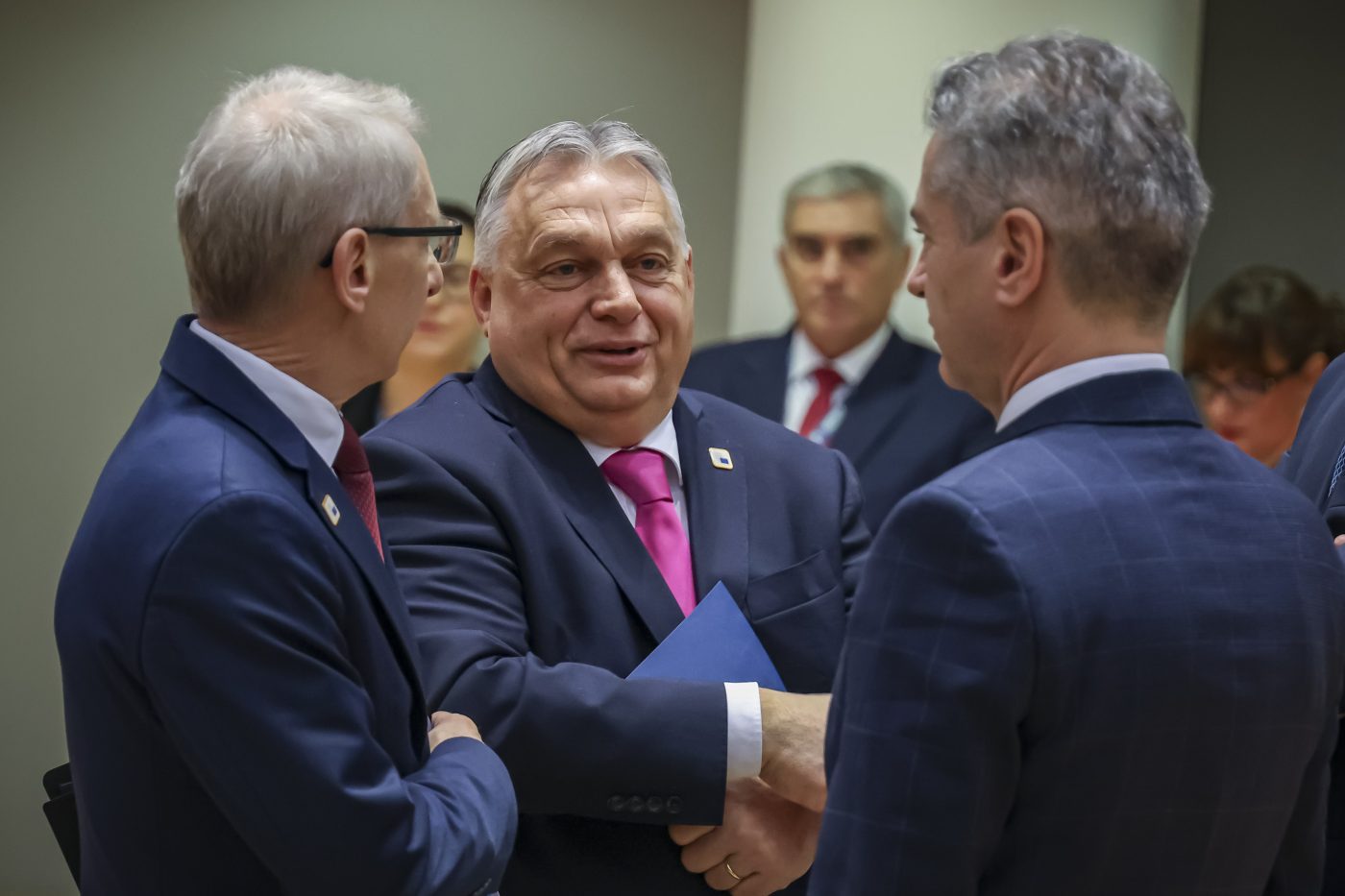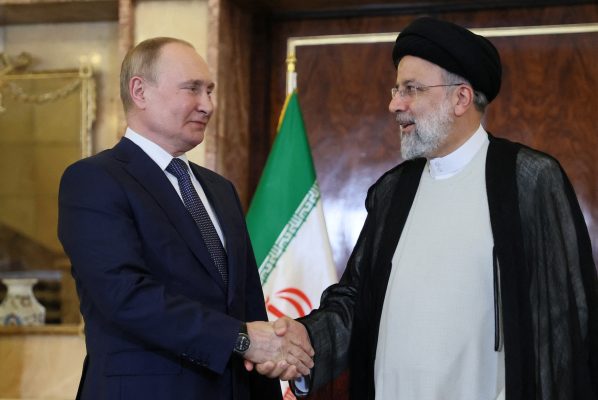Commentary following the EU summit last week can be roughly divided into two types.
While some prefer to see the glass as half full, with the decision to open accession negotiations for Ukraine and Moldova dominating the news, others say that Hungary’s positioning, and not just on Ukraine, is becoming increasingly problematic for the EU, and it is time other member states did something about Victor Orbán’s obstruction of crucial decisions.
Hungary’s veto on releasing the long-awaited €50bn ($55bn) aid package to Ukraine significantly undermined the positive message generated by the summit. But there are nonetheless encouraging conclusions to be drawn, and not only for candidate states.
There is, at last, a sense of German leadership on EU enlargement, even if this was oddly manifested — Chancellor Olaf Scholz invited Orbán to leave the room as a face-saving means to usher through the crucial vote on opening Ukraine’s accession talks.
If this had been a fictional tale, some readers would have found Scholz’s change of heart incredible, given that he barely agreed to Ukraine’s candidate status in summer 2022. But in real life, a change of leaders’ political perspective does happen, with time, not least due to a well-informed debate underway this year among the German foreign policy community.
For now, it appears that the pro-enlargement position of some in the German Bundestag and Ministry of Foreign Affairs has won the day, and rather than remain skeptical or disengaged, the Chancellor has chosen to lead this trend. This is promising, given that Germany was also a leader of the previous EU enlargement. This time around, however, Germany would not have been able to pull it off without heavyweight support from Poland, and that arrived in the form of Donald Tusk, who finally took the prime minister’s job in December after his election win two months earlier.
There is now a profound sense of ill-will toward Hungary. One senior official stated, tartly, that “at least 26” of the bloc’s leaders were responsible people, while a senior EU diplomat told Reuters the Budapest government were “hooligans” on Ukraine policy. This language is unusual and reflects the deep sense of aggravation at Orbán’s policy.
For now, it’s clear that Hungary’s decision to block the aid package, whatever its reasons, will not be allowed to torpedo the policy. Several EU leaders have stated that if Hungary continues its behavior, the bloc may simply opt to borrow the money on international markets, since such EU decisions are made by a qualified majority, and do not require unanimity.
In this context, it is worth noting France’s recent change of tone on the topic of EU reform. President Emmanuel Macron’s previous insistence on reform before enlargement seems forgotten. France now signals that it will back efforts to circumvent possible future vetoes by the EU’s awkward squad using qualified majority votes (QMV) where possible.
Be difficult if you want, he is indicating, but in the end, you will fail, particularly on the bloc’s increasingly important foreign and security policy. There will probably always be sufficient votes in the bloc to circumvent blockages. Those who do not wish a de facto two-speed Europe should take note; if you want to influence the outcome, come and negotiate.
It remains to be seen how EU aid to Ukraine will be resolved at the summit in March. One thing is clear: there can be no doubt that while Hungary’s posturing cannot stop the EU’s pro-enlargement momentum, or single-handedly turn the union away from supporting Ukraine, it can slow down decision-making and thereby undermine unity. In turn, this may play into the hands of far-right populist parties like Germany’s AfD and France’s National Rally, which oppose much of Ukraine aid.
Sooner or later, the EU will need to think harder about Hungarian tactics, and the danger that others may emulate them at a later date.
Attempts to pay off Hungary (the bloc released more than €10bn this month, but still holds around €20bn of funds earmarked for the country) and treating its veto as a nuisance, is not a long-term policy.
Orbán will be around at least until 2026 and may be joined by other Ukraine-sceptic governments. The EU’s leaders will have to deal with Hungary in earnest, and the sooner that happens the better.
Marija Golubeva is a Distinguished Fellow with the Democratic Resilience Program at the Center for European Policy Analysis (CEPA). She was a Member of the Latvian Parliament (2018-2022) and was Minister of the Interior from 2021-2022. A public policy expert, she has worked for ICF, a consultancy company in Brussels, and as an independent consultant for European institutions in the Western Balkans and Central Asia.
Europe’s Edge is CEPA’s online journal covering critical topics on the foreign policy docket across Europe and North America. All opinions are those of the author and do not necessarily represent the position or views of the institutions they represent or the Center for European Policy Analysis.





